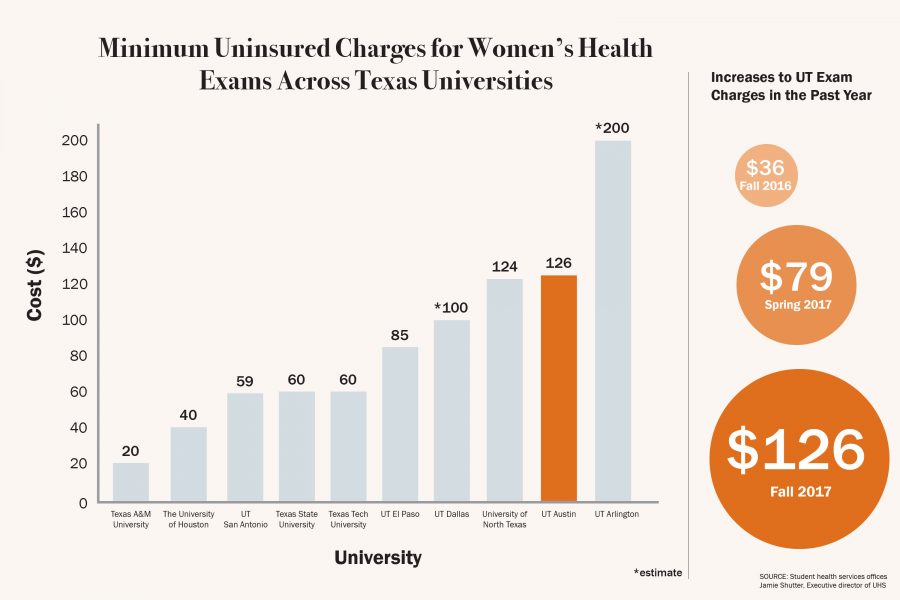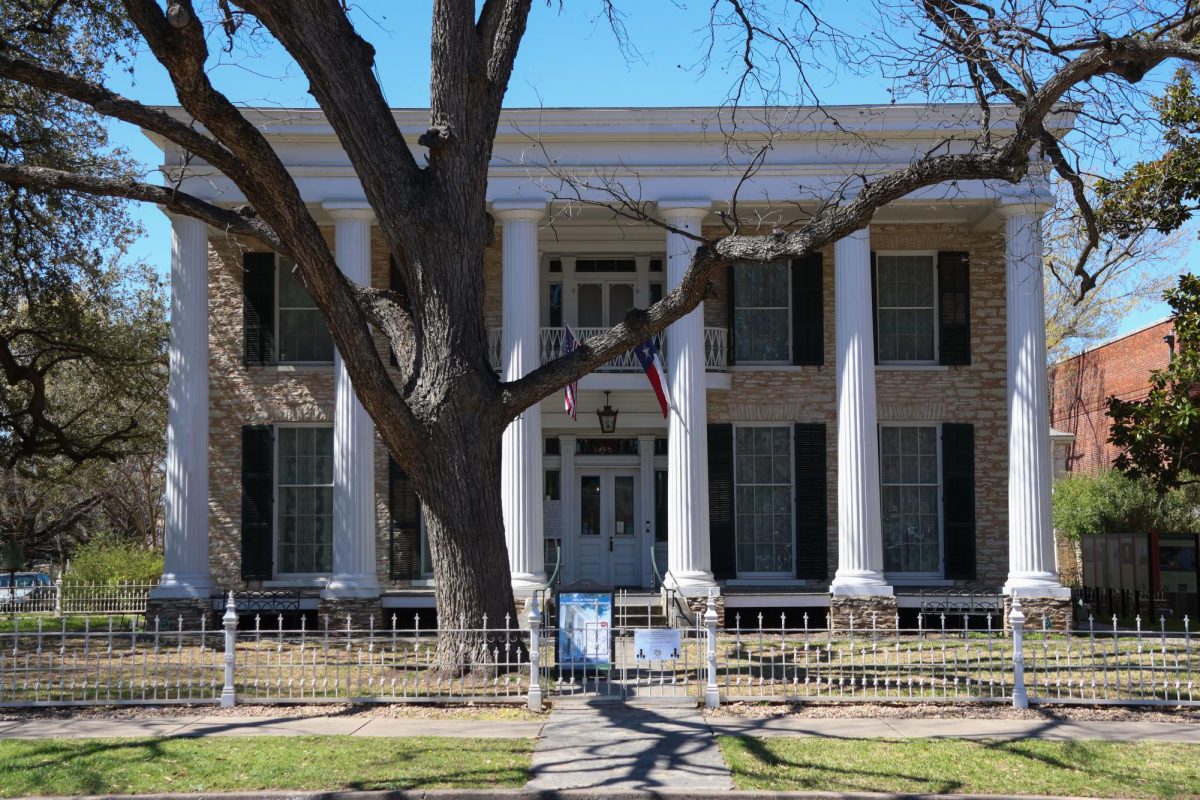The minimum cost for a woman’s annual health exam at UT’s Women’s Health Clinic in the past year has more than tripled for uninsured students, increasing from $36 last fall to $126 this August.
This recent hike made UT-Austin one of the most expensive women’s exams offered by the state’s top ten largest schools, second only to the University of Texas at Arlington, which charges around $200.
The University Health Services policy determines charges based on a variety of factors influenced by insurance billing and the Medicare reimbursement rate, Director Jamie Shutter said. When Medicare and insurance reimbursement rates go up, exam charges must also go up for the department to maintain its revenue.
“I am a very strong advocate for students and affordability, and we don’t like to increase our charges, and if it were up to me we would have much lower charges,” Shutter said. “But we have to participate in insurance billing because of the way that we’re financed. We rely on that money.”
Shutter said there are thousands of codes taken into account when determining service charges, including Medicare and insurance reimbursement rates. She said it is a UHS policy to set their charge based on these rates.
Christina Boatman, an applied learning and development senior, has been using the women’s health center as an uninsured student for three years. She said the cost for an annual exam has mostly been the same during that time, but when she recently went in this year, the price had tripled.
“I was scared, mostly,” Boatman said. “I was scared of trying to find a new gynecologist who would take someone who doesn’t have insurance, and figuring out how I was going to take care of my needs without having to take out more loans.”
Boatman said she has always had a good experience with the center in the past, but she will no longer be using their services because of the cost. She said the cost of women’s health services is disproportionate to other service costs.
“Part of it is that women’s health does have specially-trained doctors … and I think there are a few more materials involved,” Boatman said. “I feel like UHS prides themselves on being an accessible option for students, but they’re currently making themselves more inaccessible as time passes.”
Undeclared freshman Liz Martinez said although she has health insurance, she would not want to pay the $126 charge if she were uninsured because other universities do not charge as much.
“If other universities are (charging less), then why can’t we?” Martinez said. “I know people who don’t have health insurance, and I can just imagine them having to pay that much. It’s ridiculous.”
Shutter encouraged students to consider the Student Health Insurance Plan, which covers a majority of services but costs around $2,300 yearly. She also said in the coming months she hopes to bring down the cost for women’s health services, particularly annual exams.
“We’re going to be making some changes to our billing in January, and one of the things we’re considering are ways we can make a reduction to these women’s health exams,” Shutter said. “So it’s very likely that in January we will see a reduction in that charge.”





















